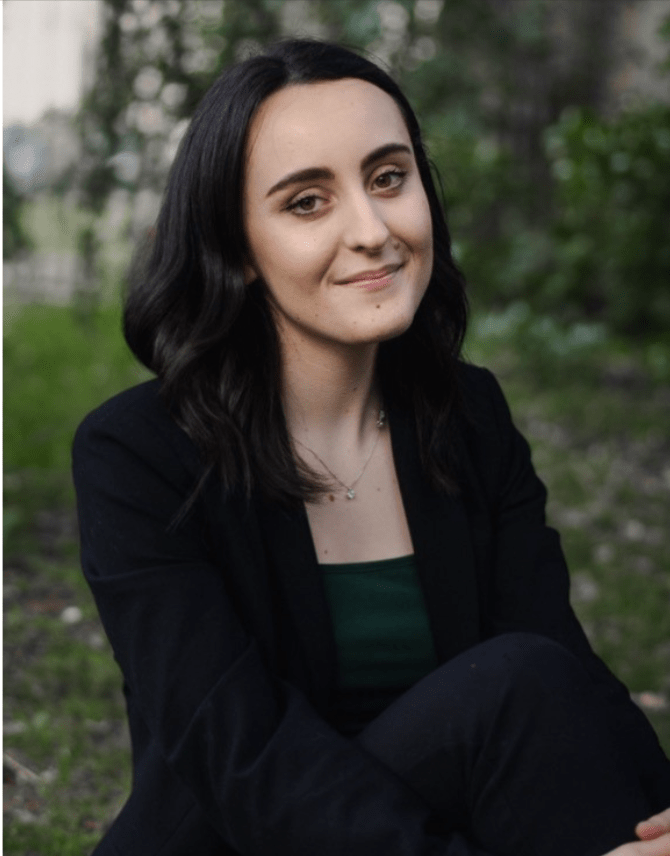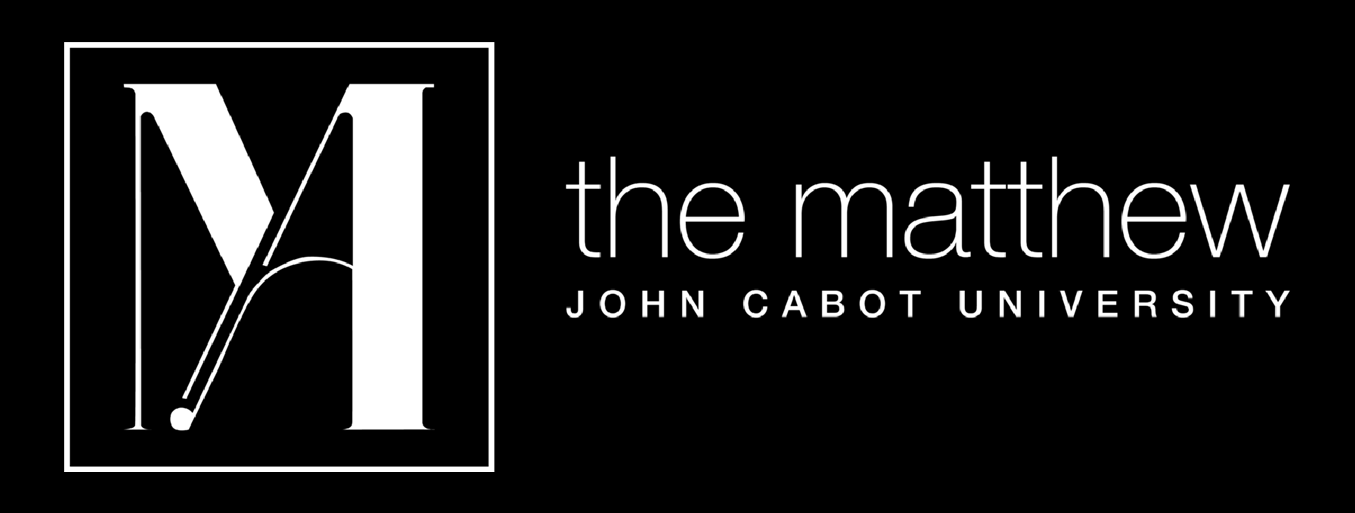Community Spotlight
By Kayla Muller and Brönte Delmonico / Matthew staff | Edited by Paige Chinn

Photo courtesy of Camilla Alessi
We had the lovely opportunity to sit down with Camilla Alessi, coordinator of the Health and Wellbeing Department at John Cabot. Between International Women’s Month, Valentine’s Day, and now Sexual Assault Awareness Month, the Health and Wellbeing Office has coordinated a multitude of programs and events around campus. As a JCU alumna herself, Camilla has been incredibly involved in the JCU community. As a student, she was a member of numerous clubs and worked as a resident assistant as well. Currently as a staff member, Camilla has brought in her own experience as a student to give back to the community and expand the reach of the Health and Wellbeing Department, directed by Roman Clark.
Given all the incredible contributions that the Health and Wellbeing Department made throughout International Women’s Month, and with April being Sexual Awareness Month,what kinds of programs and initiatives is the department organizing?
Our office collaborates a lot with the Student Services Office. It’s mainly Federica [Bocco] and I organizing the events, along with the help of Donatella [Bove Parra] as well– we also have an intern, Nora [Freeland], and she’s the best.
We are organizing Denim Day– a tabling activity– which will happen on April 24, and we also organized our Wall of Support at Frohring Campus- I saw some really special messages, which was great. We’ve also planned a creative healing event that will be organized by the Women’s Leadership Initiative, who we work very closely with. They’re always willing to help out and organize events with us, as well as the Studio Art and Design Club, who we’ll be talking with about the exhibition.
Overall, we always try to focus on consent and tie consent to all our other events. We’ve had our Valentine’s Day tabling activity, which Vicky Walsh, a sex and relationships expert, came to. Our “Love Series” will also continue to come out throughout April. We try to foster this culture of prevention and awareness and make sure that all students can participate. For the wall of support, everyone’s going to see that, which helps us create that consent culture that I aspire to work on.
How does the Health and Wellbeing Office collaborate with other offices or departments at John Cabot to raise awareness of issues such as sexual assault?
We work very closely with Student Services and with JCU clubs. If a club ever wants to collaborate with us or wants us to do something, we’re more than happy to organize it. We’re also trying to work more closely with Academic Life, which is something I want to work on to make a cohesive network where everyone can support our students. We always reach out to let them know what’s happening, as well as organize events with them: for example, this exhibition, and we’ve organized book discussions in the past that Professor Keenan has been the moderator of. We do our best to bridge that, but there’s still work that needs to be done of course. We always do our best to collaborate with as many offices, departments, and students as possible.
Looking ahead, what are some goals for the future of the Health and Wellbeing Department?
Our office deals with many different things: we have a very complex role, so to speak. We deal with emergencies, students’ day-to-day needs such as medication or appointments, and much more. A particularly important part of our job is focusing on prevention and early intervention to make sure everyone feels supported in this community.
A little insight into the future: I’ve been working on a proposal for a peer education program to ideally launch in spring. It’s called Wellness Ambassadors, and I want to empower students to support other students– I know that sometimes, coming from staff or faculty, it might not be as impactful. This support is important, but sometimes when it comes from students it can be a lot more powerful. By creating this program, I hope that we can have this approach to well-being as a whole university and we can help as many students as possible know that these are our support systems. We’re here for you. We want to help you. We want to support you through your whole academic career– and also later on.
As a JCU alumna yourself, what changes have you observed since your time as a student? Has being an alumna impacted your experience as a staff member?
I was a COVID graduate, so my graduation was in the Aula Magna. I was able to see the transition from pre-COVID, COVID, and post-COVID, as I immediately started working at JCU after graduation. When I was a student, everyone was so excited to go to any event, and they were always packed: there were never enough events to attend. During COVID and after, we’ve seen that it’s really hard to have a good number of students attend the events, per se. However, now we’re starting to get back into the groove: we had our period product workshop, which went great and had a huge turnout.
The university has gone through ups and downs, and the students, like us, have changed a lot because of COVID– but it’s a very resilient generation that we have. I think that being an alumna, I can see what I would have liked to see as a student. We had a nutritionist come here and talk to students about an appropriate diet, which is something that I didn’t have but would have been very helpful.
As a staff member now, I’m trying to look back and see what I would have liked to do, as I was very active in campus life—I was a part of student government, the Queer Alliance, and many other clubs and boards. I’m also aware that the students are different, and the needs back then might not be the needs that we have right now. What I wanted as a student was to be heard and know that the staff and the faculty are there to listen to me and listen to my needs, and that’s what I hope students see in our office. I know sometimes we’re not very visible as a department, which is something we are working on. I want students to know that if they come to us and ask for something and need help with something, we are more than happy to help.
Lastly, what do you find to be the most rewarding about your position/work?
I love my job; I love helping students and supporting them as well as their health and well-being needs. Seeing students thrive, reach out when they need support, and see them transition and grow into adults is extremely rewarding; to see students grow and take care of themselves and their well-being, and feel comfortable asking for help. When students reach out to me, I feel very rewarded because I know that I’ve done what I could in making sure that they knew I was there to help them, and they trust coming to our office and feel comfortable coming here.
You can contact Camilla at camilla.alessi@johncabot.edu, and the Health and Wellbeing office at health@johncabot.edu.

